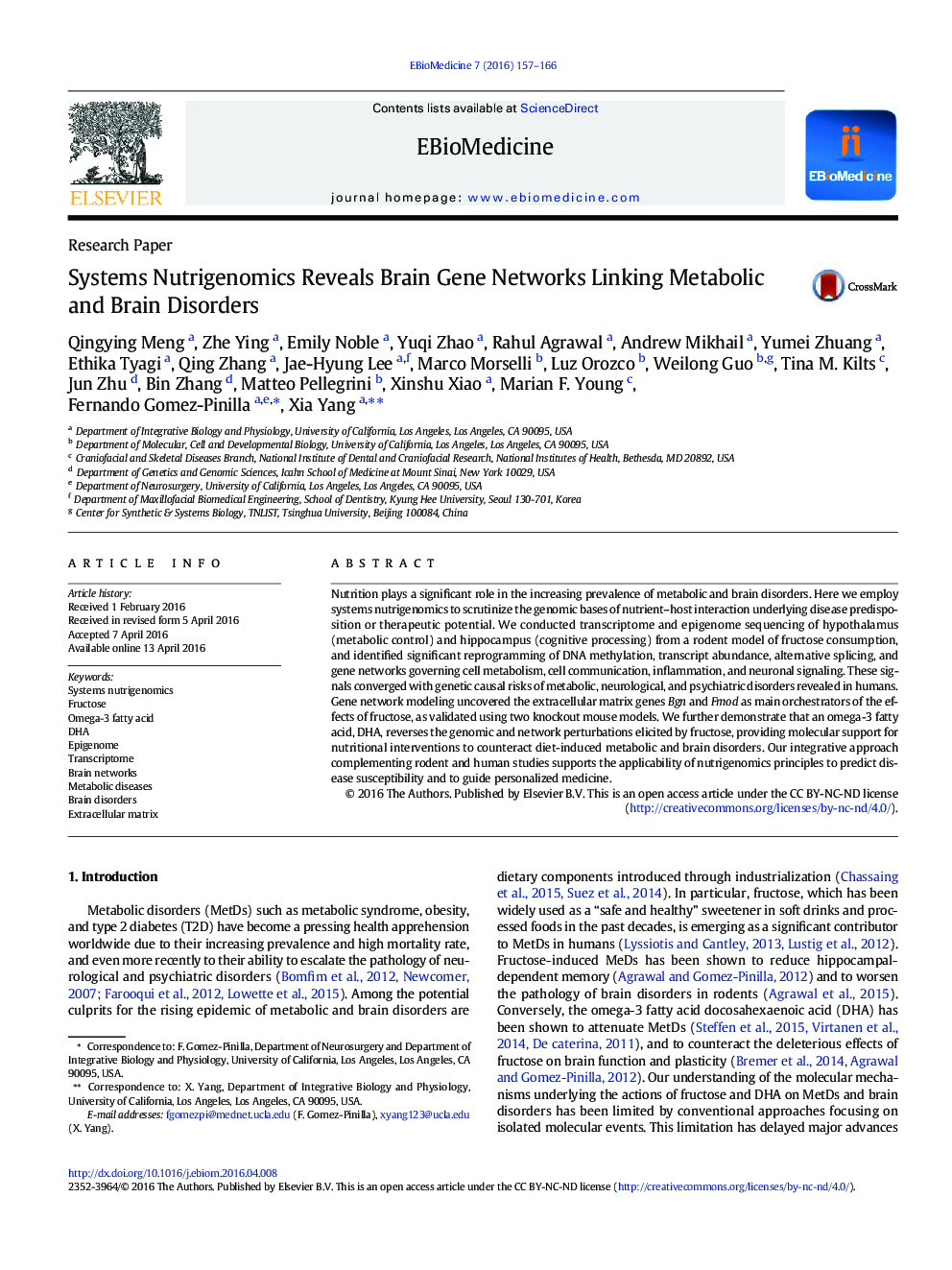| Article ID | Journal | Published Year | Pages | File Type |
|---|---|---|---|---|
| 2120839 | EBioMedicine | 2016 | 10 Pages |
•Fructose promotes transcriptomic and epigenomic reprogramming to perturb brain networks linking metabolism and brain function.•The extracellular matrix genes Bgn and Fmod emerge as key regulators of gene networks responsive to fructose.•The omega-3 fatty acid DHA reverses fructose-induced genomic and network reprogramming.Meng et al. report fructose as a powerful inducer of genomic and epigenomic variability with the capacity to reorganize gene networks critical for central metabolic regulation and neuronal processes in the brain; conversely, an omega-3 fatty acid, DHA, has the potential to normalize the genomic impact of fructose. Our findings help explain the pathogenic actions of fructose on prevalent metabolic and brain disorders and provide proof-of-concept for nutritional remedies supported by nutrigenomics evidence. Our integrative approach complementing rodent and human studies supports the applicability of nutrigenomics principles to predict disease susceptibility and to guide personalized medicine.
Nutrition plays a significant role in the increasing prevalence of metabolic and brain disorders. Here we employ systems nutrigenomics to scrutinize the genomic bases of nutrient–host interaction underlying disease predisposition or therapeutic potential. We conducted transcriptome and epigenome sequencing of hypothalamus (metabolic control) and hippocampus (cognitive processing) from a rodent model of fructose consumption, and identified significant reprogramming of DNA methylation, transcript abundance, alternative splicing, and gene networks governing cell metabolism, cell communication, inflammation, and neuronal signaling. These signals converged with genetic causal risks of metabolic, neurological, and psychiatric disorders revealed in humans. Gene network modeling uncovered the extracellular matrix genes Bgn and Fmod as main orchestrators of the effects of fructose, as validated using two knockout mouse models. We further demonstrate that an omega-3 fatty acid, DHA, reverses the genomic and network perturbations elicited by fructose, providing molecular support for nutritional interventions to counteract diet-induced metabolic and brain disorders. Our integrative approach complementing rodent and human studies supports the applicability of nutrigenomics principles to predict disease susceptibility and to guide personalized medicine.
